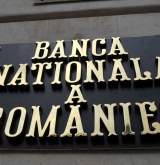On the other hand, many companies in the Asia-Pacific region see the current state of the economy as an opportunity for a wholesale review of their long term business models.
50% of managers plan to change their strategy in the next few months, out of which more than half pointed to changing consumer habits as a major factor behind their decision, according to a KPMG International study, analyzing reactions to the recession and strategies for recovery.
A majority of the surveyed managers consider that 2010 is the year in which markets will turn up. Out of KPMG member firms’ clients who participated in the survey, most predict a maximum of 24 months before the economy will recover.
Asia-Pacific businesses are using the global recession as an opportunity for major changes to their operations, in anticipation of the emergence of new international markets, while many European businesses are still undecided on how to respond to the recession, a new study from KPMG International has found.
Nearly 90 percent of businesses in Japan and 84 percent of businesses in Singapore are planning radical changes to their business models in the next decade. In India the figure is 72 percent and in China it is 66 percent.
But among companies in the Czech Republic and the Netherlands, only 20 percent are planning major changes to their businesses, rising to 25 percent in Belgium, 30 percent in Hungary and 42 percent in the UK. The highest proportion in Europe is Ireland, where 63 percent expect radical change.
These figures come from “Never catch a falling knife”, a report of research carried out among over 850 senior decision makers from 29 countries on behalf of KPMG International.
Researchers asked business people about their day-to-day experience of the recession, what lessons they are bringing to this recession from their previous experience, and what their plans are for the immediate, and long term future.
“What struck us immediately was the high proportion of people saying that this recession is unique, and there is nothing in their experience to help them,” said Serban Toader from KPMG’s member firm in Romania. “Globally, 15 percent of people took this view. But in Germany and Italy and Hungary the figure was around 40 percent. This suggests that there are a large number of companies in European countries struggling to find a strategy to cope with the downturn,” Toader added.
The immediate response from many companies is to cut costs as best they can and wait until markets begin to recover.
In Europe, many companies are relying on government action to renew their economies, particularly through better regulation of the financial sector. More than a third of respondents from Luxembourg thought this was a way forward, followed by 28 percent of companies in Spain, 24 percent in the Netherlands and 20 percent in Poland.
But among the Japanese no-one took this view, and in Singapore it was chosen by only eight percent of respondents. The preferred option in these countries is to reduce costs, with the Japanese focusing on better risk management and planning, and many companies from Singapore choosing to ride out the recession through looking after their customers.
“There clearly are companies in Europe planning to adapt to new markets, but the difference in approach between the countries of Europe and those of the Asia Pacific region is marked.” said Serban Toader. “Several of the people we spoke to in India, China and Singapore saw today’s problems as nothing new, and simply part of the regular process of renewal and reorganisation that characterises long term economic development,” said Toader.
One area on which there was a broad consensus is when the world economy will begin to recover. Just over half of companies polled expect a recovery in 2010, with 22 percent saying 2011 and seven percent saying 2012. Only a very pessimistic one percent thought we would still be in recession in 2014.
“What I think is needed is an extended period of stability; a period characterised by a lack of further, catastrophic corporate surprises; a period during which people can again feel secure in their employment,” explained Toader, adding that many senior management teams are about to receive an incredible injection of concentrated experience in managing through a downturn. “That shot of experience should hopefully, give us a generation of business leaders well equipped to drive things forward. At the moment though, such experience is very thin on the ground as virtually no senior manager under the age of 50 is going to have any experience of working in anything other than benign economic conditions,” concluded KPMG Romania’s Senior Partner.
Citeste si:
Calculator Salariu: Află câți bani primești în mână în funcție de salariul brut »
Te-ar putea interesa și:


















































































![HR [PLAY] Tech Workout - 11...](https://www.wall-street.ro/image_thumbs/thumbs/973/973fe0a3888d417feff63de42e814180-260x260-00-65.jpg?v=1714132990)









